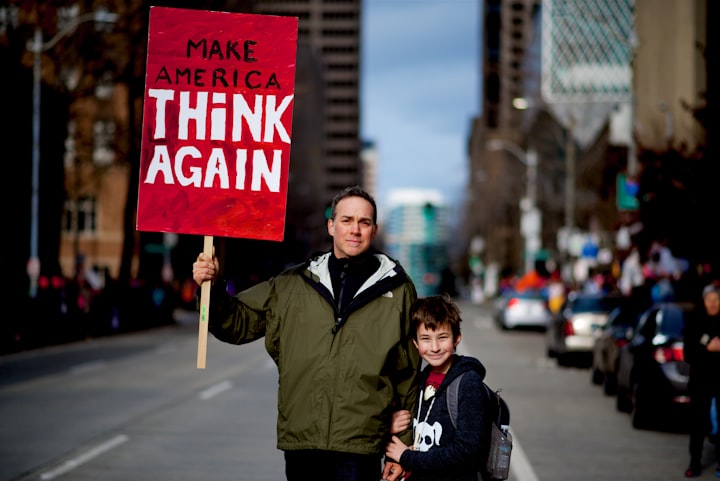Unveiling America's Political Climate in 2023
Shifting dynamics and polarization and bridging the divide
Introduction:
The political climate in the United States has long been a subject of fascination and scrutiny, and the year 2023 is no exception. Following a tumultuous period of social and political change, the American landscape has undergone significant shifts, giving rise to new dynamics and intensifying polarization. In this article, we will delve into the key elements shaping America's political climate in 2023.
Post-Pandemic Recovery and Economic Priorities:
The nation continues to grapple with the aftermath of the global COVID-19 pandemic. In 2023, the focus remains on rebuilding the economy, ensuring widespread vaccination, and addressing long-standing disparities exacerbated by the crisis. Discussions surrounding fiscal policies, infrastructure investments, and healthcare reform dominate political discourse, with various factions offering competing solutions to these complex challenges.
Partisan Polarization and Identity Politics:
Political polarization has become deeply entrenched, reflecting a growing divide between Democrats and Republicans. Identity politics continues to influence the national dialogue, with issues such as race, gender, and immigration fueling intense debates. The rise of grassroots movements, particularly on social media platforms, has amplified the voices of marginalized communities and contributed to the shaping of political agendas.
Voting Rights and Electoral Reforms:
The 2020 presidential election sparked renewed discussions on voting rights and election integrity. In response, numerous states have enacted or proposed changes to voting laws, triggering debates on access, equity, and the balance between voter security and suppression. These conversations, driven by concerns about democratic processes and representation, highlight the ongoing struggle for a fair and inclusive electoral system.
Climate Change and Environmental Policies:
The urgency to address climate change has become a defining feature of American politics in 2023. The impacts of extreme weather events and the need for sustainable practices have elevated environmental issues to the forefront. Policymakers and activists are pushing for transformative measures, including clean energy transitions, carbon neutrality, and international cooperation to combat the climate crisis.
Foreign Policy and Global Leadership:
Internationally, America's political climate in 2023 is characterized by an evolving approach to foreign policy and global leadership. The country aims to redefine its role in international affairs, striking a balance between global engagement and domestic priorities. Key areas of focus include trade relations, human rights, security alliances, and the management of geopolitical challenges like cybersecurity and emerging technologies.
Technology, Privacy, and Regulation:
Advancements in technology continue to shape the political landscape. Discussions around data privacy, cybersecurity, and the regulation of social media platforms have gained prominence. The balance between free speech and combating misinformation remains a critical challenge, as policymakers grapple with the influence of technology giants and seek to protect democratic processes in the digital age.
Conclusion:
As we navigate the complexities of the political climate in 2023, it becomes evident that America stands at a crossroads. The nation faces significant challenges, ranging from public health and economic recovery to social justice and climate change. However, these challenges also present opportunities for unity, innovation, and progress. It is crucial for Americans to engage in constructive dialogue, bridge partisan divides, and work towards common goals, fostering a more inclusive and resilient political climate for the years to come.
In recent years, America has witnessed a growing political divide that has led to polarization, mistrust, and a lack of constructive dialogue. This division has hindered progress and hampered the country's ability to tackle critical issues. However, there is hope. By actively engaging in efforts to bridge the political divide, individuals can foster understanding, promote empathy, and work towards a more united nation.
Bridging the political divide in America is a collective responsibility that starts with individuals. By cultivating empathy, seeking diverse sources of information, engaging in constructive dialogue, getting involved in the community, and supporting civics education, we can build bridges and foster unity. It is through these small yet meaningful actions that we can create a more inclusive, understanding, and resilient society that transcends political differences and works towards a brighter future for all.
About the Creator
Brandon Stuart
My articles offer informative and educational content. Learn something new, broaden your knowledge and stay updated on the latest developments in a specific areas.







Comments
There are no comments for this story
Be the first to respond and start the conversation.